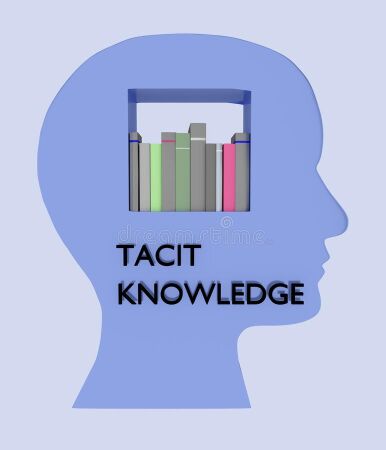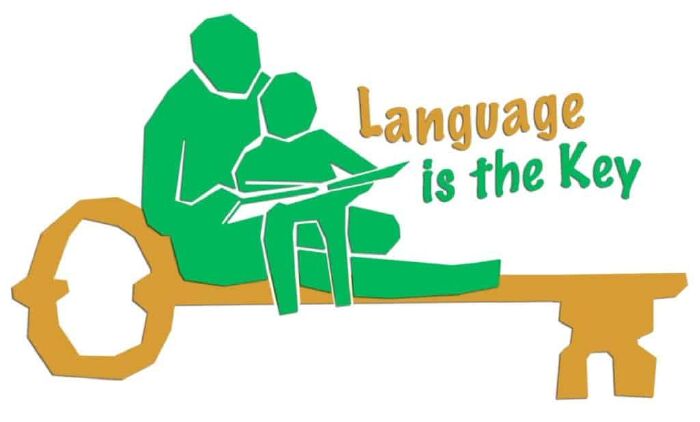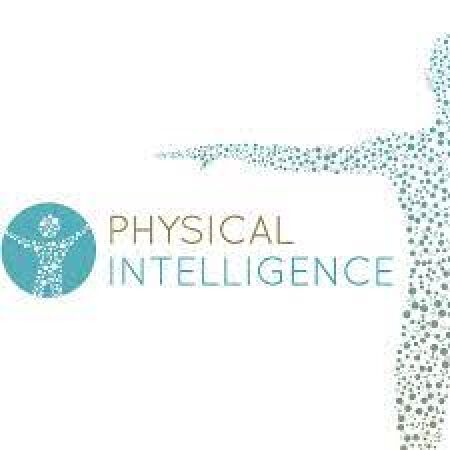It's typical to conceive of intellect as something you're born with. After all, some people make being clever appear effortless. However, intelligence is not a fixed characteristic. It is a variable, adaptable ability to learn and excite your brain that may improve with time. The idea is to develop lifestyle behaviors that support and protect your brain. Continue reading to find out what research has to say about how you can improve both your crystallized and flexible intelligence.
1 Cognitive Innovation

Cognitive Innovation (Source: BlueCallom)
Intelligence can be a difficult concept to describe or categorize. To solve issues, grasp language, and adjust to change, you rely on a variety of cognitive abilities, yet we know relatively little about what makes one person "more brilliant" than another. Although there is no all-encompassing theory of intelligence, psychologists such as Robert Sternberg have developed valuable models that help individuals like us understand where intelligence comes from and how it evolves through time. Sternberg categorizes intelligence into three types: analytical intelligence, practical intelligence, and the category we'll look at now: creative intelligence. Your ability to find fresh answers to old issues is referred to as creative intelligence. For example, how do you brush your teeth if you don't have a toothbrush? Solving this type of challenge necessitates a creative mind, thinking outside the box, and a willingness to break the rules. But here's the catch. Only a tiny percentage of people regularly use their creative intelligence. In other words, most people do things the same way they've always done them, and they rarely push themselves to think differently. We'll look at a real approach called the Alternative Uses Task, which was developed in the 1960s for a real psychology experiment, to help you increase your creative thinking. Choose a straightforward challenge, such as putting on your shoes or pouring milk into a bowl of cereal. Next, consider as many uncommon or unconventional solutions to the problem as you can. Your solutions do not have to be game changers. They don't even have to be logical. However, each task should force you to think outside the box. This allows your creative thinking to grow and improve by putting it on exhibit.
2 Tacit Intelligence

Tacit Intelligence (Source: Dreamstime)
Another strong intellectual capacity is tacit intelligence, which describes your ability to apply past information and experiences to new situations. Assume you've just started a new job doing something you've never done before. You've never done this particular job before, but that doesn't imply you're inexperienced. Someone with tacit intelligence understands that useful lessons can be learned in unexpected places. Unfortunately, most people do not inherently possess implicit intelligence. In fact, most people struggle to connect old experiences with new ones, particularly on the job. The issue, however, has nothing to do with their IQs. The issue... is the way they think. When confronted with an issue, you, like many others, may become sidetracked by exterior characteristics. Assume you are selling an automobile for the first time in your life. Because you've never sold a car before, you feel unskilled and confused, but the truth is... you have more experience than you realize. Perhaps you've already purchased a car, exposing yourself to the strategies of other, more successful salespeople. My point is that you are never entirely out of your element. When confronted with a task, ask yourself, "Have I done anything similar in the past?" If so, how can I apply lessons from my history to future challenges?" You may know more than you think if you think hard and reflect on your accomplishments.
3 Novel Stimulation

Novel Stimulation (Source: Max Planck Institute for Brain Research)
It takes more than academic procedures and everyday activities to raise your IQ. In reality, one of the simplest methods to boost your IQ is with a simple adjustment in lifestyle. Many people spend the majority of their life stuck in monotonous, repetitive activities. Every day, you turn off your brain and engage in things that do not excite it. While no one can avoid boredom, it is vital to challenge your mind with new ideas, interests, and trips. Otherwise, your brain, like any other muscle, would weaken and become more sluggish with time.
4 Natural Connection

Natural Connection (Source: VectorStock)
Psychologist Howard Gardner defines another type of intelligence that he calls Naturalist Intelligence. Naturalist intelligence is associated with a strong affinity to the natural world. They enjoy learning, exploring, and spending time in nature, and they have a strong concern for other living things. Naturalist intelligence, like any other type of intelligence, is a cognitive talent that may be developed over time. Consider your relationship with nature to be similar to that of a close friend. You strengthen that link by spending time together, finding common ground, and exposing deeper vulnerabilities. It may feel awkward or uncomfortable to form the same connection with nature, but regular excursions into nature, such as walks, hikes, and other outdoor activities, can create deeper, emotional attachments and deepen your understanding of the natural world. Naturalist intelligence may make you more ecologically conscious, but it also has an impact on memory, creativity, and problem-solving abilities. Walking through a forest or going up a mountain may not appear to be intellectual hobbies, but the truth is that your relationship with nature typically reflects your overall intelligence. Learn more about the world... and you might learn more about yourself.
5 Visual Entertainment

Visual Entertainment (Source: World Economic Forum)
Many of the most intelligent people are good visual thinkers. They can quickly visualize and manipulate complex items in their imaginations to solve complex problems. For example, architects use visual intelligence to design enormous structures such as buildings and bridges that can withstand heavy loads for hundreds of years. Visual problem-solving is an important skill and a sign of intellect, yet few individuals spend time learning it. Fortunately, there are a plethora of activities available to help you enhance your visuospatial reasoning. Consider origami, the art of folding paper. Origami presents a simple yet immensely complex challenge: how do you turn a single piece of paper into a complex shape, such as a dragon or a crane? Origami constantly challenges you to solve visuospatial difficulties, increasing your creativity and forcing your mind to think in geometrical forms such as lines, angles, and shapes. Students, teachers, and professionals worldwide utilize origami to develop their visual thinking and problem-solving abilities. In fact, a 2000 study discovered a strong association between visuospatial brain games like origami and higher standardized exam scores. So take a piece of paper and start folding. With a little effort, you can sharpen your visual thinking, boost your IQ, and stimulate your creativity simultaneously.
6 Emotional Perception

Emotional Perception (Source: Rise Psychology)
Many of the most intelligent people are bright, wise individuals with a good eye for social nuances. They are able to detect physical and emotional signs that the rest of the world misses, providing them an advantage in most social situations. But how do you teach your brain to recognize these small cues? Before you can comprehend another person's ideas or emotions, you must first notice sensory information such as body language, facial expressions, and tone of voice. Each piece of sensory information contributes to your understanding of a person's mood, attitude, or character, which influences how they act and speak. People-watching is an excellent technique to hone your observational skills. Sitting in a public place exposes you to a wide range of physical cues, emotional states, and social pairings, providing you with real-world experience and a more complete understanding of how people interact. You'll develop a keen eye for physical signs and the various messages hidden behind them. You'd be shocked at how much you can learn just by watching the world go by.
7 Challenging Discussions

Challenging Discussions (Source: SMI)
Life is full of intricate mysteries, many of which will never be solved by humans. However, seeking to unravel those mysteries can be one of the most beneficial brain exercises. Sit down with a friend and try to debate one of the universe's many mysteries if you want to improve your intelligence. Challenge your thoughts along the way. Investigate your uncertainties. Pose impossible questions and provide impossible solutions. You are not required to end your discussions with definite or detailed answers. In fact, you may be more perplexed by the finish than you were at the start. But that's fine. Because thinking about life's riddles, even if you get them incorrect, expands your intelligence in ways that nothing else can.
8 Linguistic Excellence

Linguistic Excellence (Source: Rachel Paling)
Do you want to be a better public speaker? What about a writer who is both detailed and eloquent? Linguistic intelligence is a rare intellectual ability that enables you to express yourself in novel and impactful ways. A furious speech, for example, can excite big groups of people, but dynamic works of fiction can pique the interest of readers worldwide. The simplest strategy to develop linguistic brilliance is to engage with language as frequently as possible. Every day, I read. Write poetry or stories. Speak to as many individuals as possible. If feasible, learn a new language. The more you use these skills, the stronger they will become. Those blazing speeches and powerful fiction will eventually come naturally if you practice hard enough.
9 Scientific Development

Scientific Development (Source: Study.com)
Our society is impatient intellectually. We rarely pause to consider all of the possibilities when we wish to answer a question. Instead, we enter the question into our cellphones and have the answer in seconds. However, the immediate nature of that knowledge dulls your scientific thinking. Here's an exercise you can do practically every day to improve your IQ. When you ask a question or solve a problem, don't look up the answer. Make an educated guess instead. Only until you've written down your best guess on a piece of paper may you access your phone and browse the Internet. This may appear to be a worthless activity, yet it gives you an important skill set. Creating hypotheses encourages you to make meaningful conclusions from limited data. This allows you to make more informed decisions, draw more nuanced conclusions, and detect relevant patterns in the world around you.
10 Physical Intellect

Physical Intellect (Source: Buzzsprout)
Motor capabilities such as movement, balance, and coordination are sometimes overlooked in discussions about intelligence. However, each one plays a demanding cognitive role in unlocking advanced talents such as social coordination and emotional expressiveness. Many meditation activities, for example, combine physical and mental exercise to stimulate your mind and encourage sophisticated thought. You don't have to run marathons or bench-press 300 pounds to be a confident intellectual. Still, if you want to progress intellectually, you need to connect with your body and develop a physically stimulating habit. Playing sports once a week, for example, can teach you a wide range of abilities, from collaboration and coordination to patience and self-control. You don't have to be the fittest person on earth, but working out your body often works out your mind.

